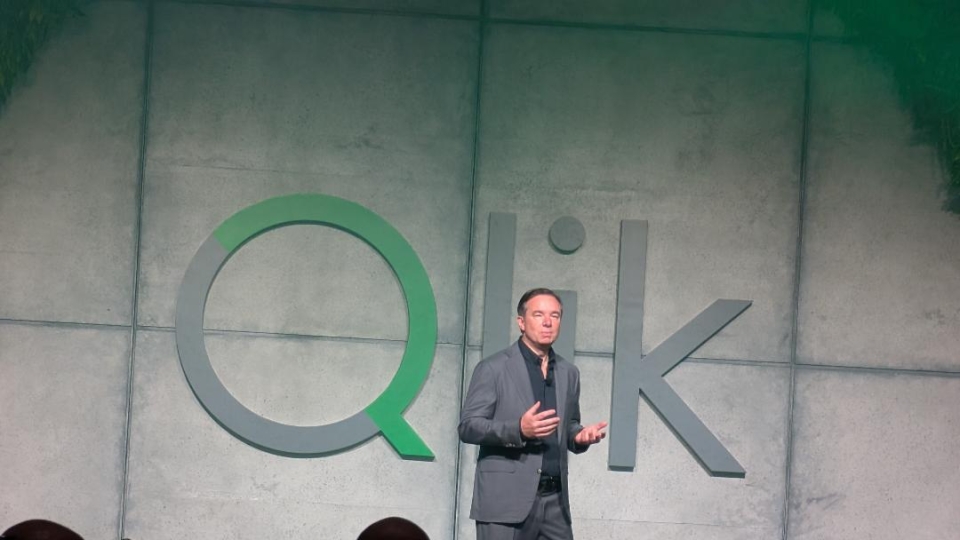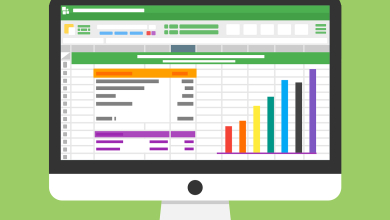
Data integration, analytics, and artificial intelligence firm Qlik is putting the channel front and centre of its AI efforts, as enterprises seek to make their investments pay. We sat down with the firm’s channel head at the Orlando customer and partner event Qlik Connect to find out the strategy.
When it comes to data preparation tools, analyst house Gartner lists Qlik’s main competitors as Microsoft, Salesforce (Tableau), SAP, IBM, Informatica, Google, Strategy (MicroStrategy Inc), and Alteryx. And there are many others too.
Two of these companies had their own AI-focused announcements this week, which we’ll cover below.
But first, after we previously covered some early show announcements, over to David Zember, senior vice president of worldwide channels and alliances at Qlik. “We’re two years into a journey of scaling more business through the channel. We have over 1,000 partners globally, and many go through our distribution model, now primarily focused on TD Synnex in North America and Europe, and Redington in the Middle East and Africa. We also have master reseller models operating in the LATAM and APAC regions.
“It took us a while to finalise these distribution arrangements, so aren’t planning any further changes to them.”
So what about overall partner numbers? “We don’t really want more partners, we want to go deeper with the ones we already have, and are doing so. TD Synnex has 30,000 partners in data analytics, and can help and support the ones that want to do more Qlik business.
“Qlik cannot do what it wants to do in the AI market without a very strong ecosystem, and the two-tier model is ideal for a large part of it.”
Zember says distribution/resell partner business currently amounts to 45% of its business. But when you include cloud service providers like AWS and Google, and the big global system integrators like Tata Consultancy Services, for instance, along with technology alliance partners, the total indirect business count comes up to “over 80%”, he says.
Agentic AI and Lakehouses
Among the new technologies that the Qlik channel will be tasked to handle are agentic AI and lakehouses, after new offerings were unveiled at QlikConnect.
An “agentic experience” will provide a single, conversational interface allowing users across the enterprise to interact naturally with data, using specialised AI agents to quickly uncover insights, drive faster decisions, and boost productivity, promised Qlik.
At the heart of this effort is the Qlik engine, which indexes relationships across data, enabling the discovery of “unexpected connections”. The agentic experience builds directly on this engine, expanding the ability of both users and agents to intuitively access these relationships, surface insights, and take action across diverse data, we are told.
The agentic experience will enable users to access insights and take action simply by engaging in natural language dialogue. Operating “seamlessly” across Qlik Cloud, including data integration, data quality, and analytics solutions, the experience “removes friction, providing fast, intuitive visibility for smarter decisions and higher productivity, the vendor said.
Introduced last year, for unstructured data, Qlik Answers will bring together structured and unstructured data in a single natural language experience, delivering trusted answers and enabling automated actions. And revealed for the first time at the show, a discovery agent will proactively identify critical risks and opportunities across applications and datasets, presenting insights and recommended actions through a personalised feed.
“This new agentic experience is about removing the distance between data, decisions, and outcomes,” said Mike Capone (pictured), CEO of Qlik. “People want a seamless, conversational way to engage with their data, one that fits naturally into their work and delivers clear, trusted answers in context. We’ve built this experience to reflect how decisions actually get made in a business.”
“We’re under constant pressure to make faster, better decisions with data that’s scattered across the business,” said Yuzuru Fukuda, corporate executive officer, senior EVP, enterprise division CEO, Fujitsu. “The ability to ask a question and get a trusted, contextual answer - across structured reports, unstructured content, and automated workflows - is exactly the kind of capability we’ve been waiting for. It has the potential to remove a lot of friction from how decisions actually get made.”
The Qlik agentic experience will “begin rolling out this summer, starting with private previews”, Qlik said.
The Qlik Open Lakehouse, a fully managed Apache Iceberg solution built into Qlik Talend Cloud was also given its first airing. Designed for enterprises “under pressure to scale faster and spend less”, Open Lakehouse delivers real-time ingestion, automated optimisation, and multi-engine interoperability - “without vendor lock-in or operational overhead”.
As organisations accelerate AI adoption, the cost and rigidity of traditional data warehouses have become unsustainable, said Qlik. Open Lakehouse offers an architecture powered by Apache Iceberg that is said to deliver 2.5x–5x faster query performance, and up to 50% lower infrastructure costs, while maintaining full compatibility with the most widely used analytics and machine learning engines.
“Performance and cost should no longer be a trade-off in modern data architectures,” said CEO Capone. “With Open Lakehouse, enterprises gain real-time scale, full control over their data, and the freedom to choose the tools that work best for them. We built this to meet the demands of AI and analytics at enterprise scale, without compromise.”
“The Qlik Open Lakehouse initiative is a significant development we're keenly watching,” said David Navarro, data domain architect at Toyota Motor Europe. “Large corporations like ours urgently need interoperability between diverse business units and partners, each managing its own technology stack and data sovereignty. Apache Iceberg is emerging as the key to zero-copy data sharing across vendor-independent lakehouses, and Qlik's commitment to delivering performance and control in these complex, dynamic landscapes is precisely what the industry requires.”
Qlik Open Lakehouse will be generally available in July 2025. As mentioned, Qlik rivals made AI announcements of their own this week. Informatica has announced expanded partnerships with Salesforce, Nvidia, Oracle, Microsoft, AWS and Databricks, to help customers “modernise to the cloud” and support their “most business-critical and transformational use cases”, including agentic AI applications.
In addition, Informatica is building on its AI capabilities (CLAIRE GPT, CLAIRE Copilot), with its latest agentic solutions, CLAIRE Agents and AI Agent Engineering, which help data teams manage: increased AI adoption demands, complex governance requirements, and regulatory oversight across siloed data environments.
And Alteryx has launched Alteryx One, a unified suite that delivers AI-powered analytics capabilities, giving customers “greater flexibility” to automate and scale analytics across their entire data ecosystems.
Alteryx One will introduce a centralised portal that enables customers to “effortlessly manage” their complete Alteryx portfolio through a central interface, regardless of deployment model.


